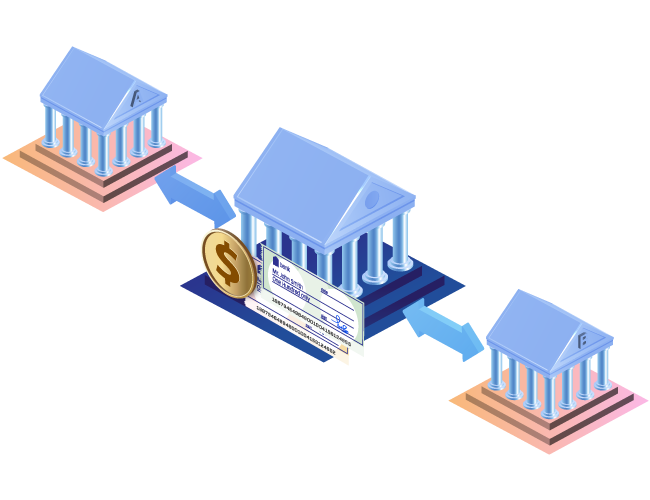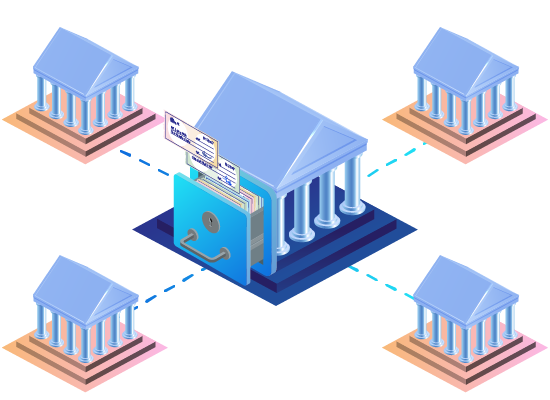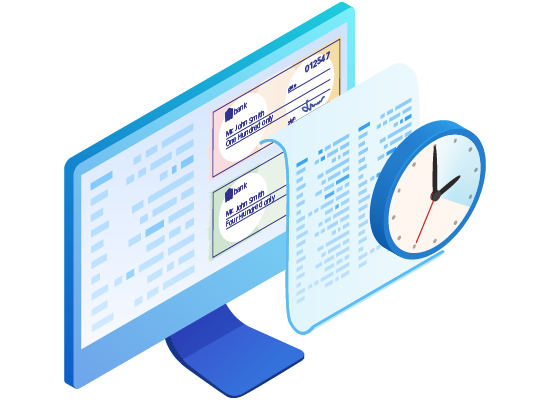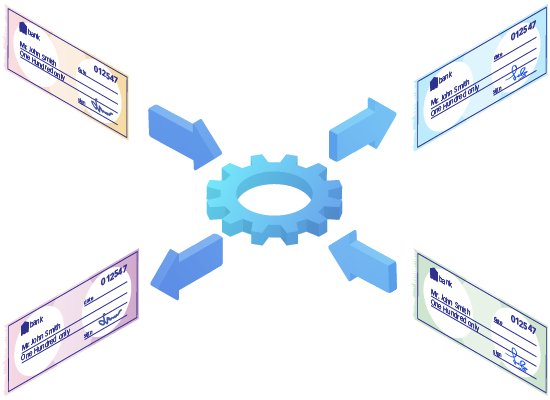ECC – Clearing House Unit
Prompt Clear
ProgressSoft’s ECC Clearing House Unit provides regulatory bodies such as central banks or clearing houses with a check clearing switch that controls the flow of electronic check items in a clearing cycle and moves check images and data via a communication network between banks and the regulatory body.
The solution provides complete management over the clearing cycle, seamlessly integrates with Real-Time Gross Settlement (RTGS) systems, and implements interfaces to blacklisting, anti-money laundering, risk management and fraud detection systems.

Features
Central Repository


Clearing Cycle Management
Check Switching

More features
Clearing Process Management
Prompt Clear allows authorized users to manage clearing sessions that are used by participants for presentment and reply. Sessions can be uniquely defined, scheduled and flexibly configured as needed. Similarly, fees and penalties can be defined and enforced by the system throughout the clearing process in accordance with regulations.
Participant Management
Prompt Clear supports different types of participants who are defined based on having a physical connection with the regulatory body and an ownership of settlement accounts. Various participant management options are provided including participant suspension, defaulting and termination.
Monitoring and Auditing
Prompt Clear avails online monitoring and tracking of the clearing process that enables the regulatory body to be aware of any updates in an automated manner. It allows the regulatory body to perform different levels of logging and audit trails, as well as refer back to transaction logs for specific users, groups, or dates to resolve any dispute between member banks.
Participant Request Management
Prompt Clear allows authorized users at the regulatory body to process and respond to bank requests such as extending a clearing session beyond working hours, or cancelling a check before session closure.
Advanced Security
Prompt Clear exploits a wide range of security mechanisms to prevent sensitive data loss or tampering. It ensures authenticity and validity of received check sources and information using modern technologies such as digital signatures, as well as maintains the confidentiality of system and user information using data encryption.
National Check Archive
Prompt Clear offers a national check archive system that enables the regulatory body to log completed clearing items and allows member banks to query items in the archive. This archive consists of a special server and long-term storage that accommodates 10 to 20 years' offline storage.
Benefits
Efficient Practices
Expands cut-off times and eliminates repetitive manual tasks such as sorting and counting
Boosted Economy
Increases total volume of check processing and credibility, ultimately contributing to economic growth
Enhanced Management
Provides liquidity management and monitoring through direct statistics and oversight
Improved Control
Offers extensive control over the check clearing cycle, reducing potentials of fraud
Mitigated Risks
Eliminates transportation of physical checks which reduces risk of check losses and recovery costs